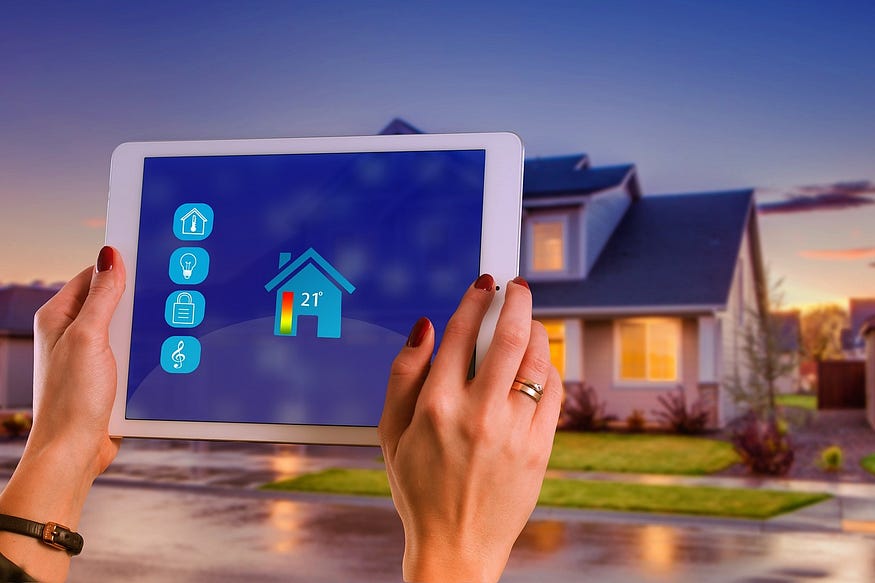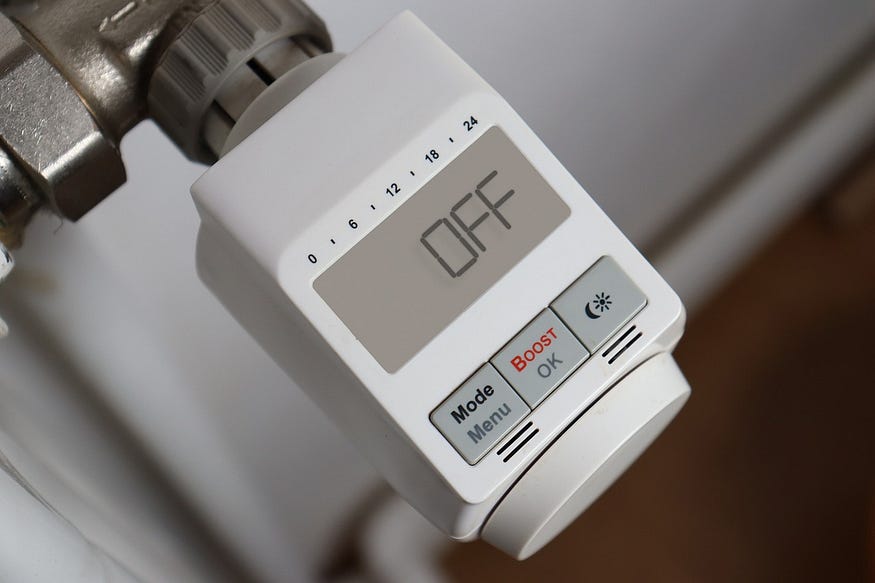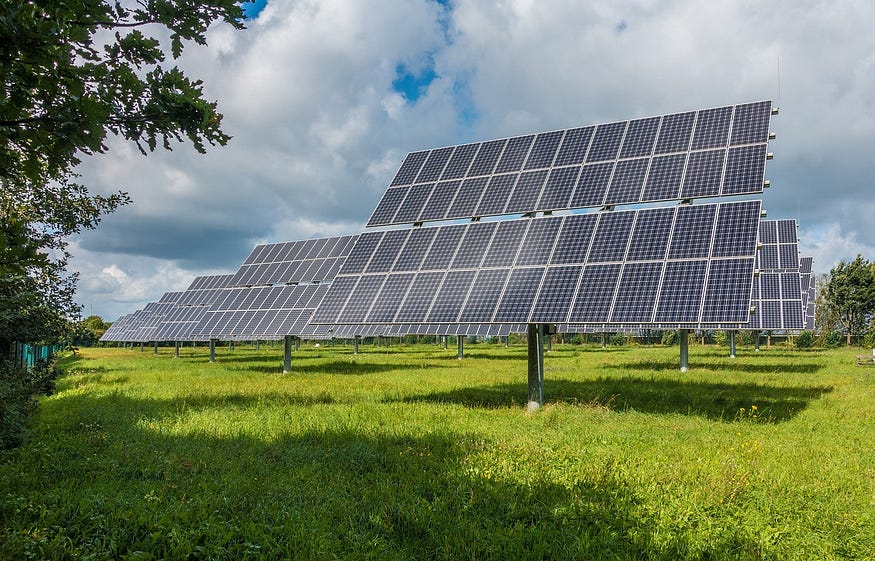Revolutionizing Home Energy Efficiency with AI Technology


In an era of sustainability and cost-conscious living, optimizing home energy efficiency is paramount. Harnessing the power of Artificial Intelligence (AI) technology, homeowners can now revolutionize the way they manage energy consumption. Let’s explore how AI transforms traditional energy management, leading to eco-friendly homes and significant cost savings.
Introduction
As concerns about environmental impact and energy costs continue to rise, homeowners are increasingly turning to innovative solutions to optimize their home energy efficiency. With the emergence of AI technology, traditional methods of energy management are undergoing a revolution. AI-powered systems analyze energy consumption patterns, adjust settings in real-time, and provide actionable insights to reduce waste and promote sustainability.
In response to growing concerns about environmental impact and energy costs, homeowners are increasingly adopting AI technology for home energy efficiency. AI-powered systems analyze consumption patterns, adjust settings in real-time, and provide insights to reduce waste and promote sustainability. By integrating AI, homeowners gain access to intelligent systems that optimize devices like heating, cooling, and lighting based on usage behaviors and preferences. Predictive analytics enable preemptive measures to mitigate wastage. The integration of AI in home energy management signifies a pivotal stride towards sustainable living practices and cost savings.
1. Intelligent Energy Monitoring

AI technology plays a pivotal role in revolutionizing home energy management by facilitating comprehensive monitoring of energy usage. Through the integration of smart meters, appliances, and HVAC systems, AI enables the collection and analysis of valuable data. This data encompasses usage patterns, peak consumption times, and areas of inefficiency within the household. Armed with insights derived from AI algorithms, homeowners gain the ability to make informed decisions regarding their energy consumption habits.
The real-time monitoring capabilities of AI systems allow for immediate identification of energy-intensive activities or devices, prompting users to adjust settings for optimal efficiency. Moreover, AI algorithms can forecast future energy needs based on historical data, enabling proactive measures to minimize waste and reduce overall energy costs.
By leveraging AI technology, homeowners can take proactive steps towards creating more sustainable and energy-efficient living environments. From adjusting thermostat settings to scheduling appliance usage during off-peak hours, AI empowers individuals to make conscious choices that contribute to both environmental conservation and financial savings. The integration of AI-driven energy monitoring systems represents a significant step forward in promoting responsible energy usage and fostering a greener future for generations to come.
2. Smart Thermostat Integration

Smart thermostats, enhanced with sophisticated AI algorithms, represent a significant advancement in home energy management. These intelligent systems go beyond basic temperature control by actively learning homeowners' preferences, occupancy patterns, and environmental conditions. Through continuous monitoring and analysis, smart thermostats optimize heating and cooling schedules to ensure maximum comfort while minimizing energy consumption.
The integration of AI algorithms allows smart thermostats to adapt dynamically to changing conditions. By considering factors such as occupancy status, weather forecasts, and time-of-day patterns, these systems adjust temperature settings accordingly. For instance, during periods of low occupancy or when occupants are asleep, the thermostat may lower the temperature to conserve energy. Conversely, it may raise the temperature before occupants return home to ensure comfort upon arrival.
Moreover, smart thermostats provide users with insights into their energy usage patterns, empowering them to make informed decisions about energy conservation. Through user-friendly interfaces and mobile applications, homeowners can monitor energy consumption in real-time and make adjustments as needed.
Overall, the combination of AI technology and smart thermostats offers a comprehensive solution for optimizing home energy efficiency. By intelligently managing heating and cooling systems, these innovative devices contribute to environmental sustainability while providing homeowners with increased comfort and cost savings.
3. Predictive Maintenance

AI-powered energy management systems are revolutionizing the way homeowners maintain and optimize their energy infrastructure. These advanced systems utilize predictive analytics to anticipate equipment failures and inefficiencies before they occur. By continuously analyzing performance data from smart meters, appliances, and HVAC systems, AI algorithms detect anomalies and deviations from normal operation.
This proactive approach enables AI-powered systems to alert homeowners to potential issues promptly, allowing for timely maintenance interventions and preventing costly breakdowns. Through predictive maintenance, homeowners can address minor issues before they escalate into major problems, thus ensuring the uninterrupted operation of their home energy systems.
Moreover, AI technology enhances the efficiency of energy management by optimizing heating, cooling, and other energy-consuming processes. Smart thermostats equipped with AI algorithms learn homeowners' preferences, occupancy patterns, and environmental conditions to adjust temperature settings dynamically. By optimizing heating and cooling schedules based on occupancy and external factors, these systems minimize energy waste without compromising comfort.
In essence, AI-powered energy management systems not only enhance reliability and efficiency but also contribute to cost savings and sustainability. By harnessing the predictive capabilities of AI, homeowners can maintain a comfortable living environment while minimizing energy consumption and reducing the risk of unexpected maintenance expenses.
4. Renewable Energy Integration

AI technology plays a pivotal role in integrating renewable energy sources like solar panels and wind turbines into home energy systems seamlessly. By leveraging AI algorithms, homeowners can optimize the utilization of renewable energy resources in alignment with weather forecasts and energy demand patterns. This strategic approach empowers households to maximize energy savings while simultaneously reducing dependence on conventional power grids.
The dynamic nature of AI-driven energy management allows for real-time adjustments in energy distribution and consumption, ensuring efficient utilization of renewable resources. For instance, AI algorithms can predict periods of high solar or wind energy generation and coordinate energy storage systems to store excess energy for later use during peak demand hours or when renewable energy production is low.
Furthermore, AI technology enables predictive analytics to forecast energy generation from renewable sources with greater accuracy. By analyzing historical data and current weather conditions, AI algorithms can anticipate fluctuations in renewable energy output and adjust home energy systems accordingly.
In essence, the integration of AI technology with renewable energy sources empowers homeowners to embrace sustainable energy practices while optimizing energy usage and reducing environmental impact. This innovative approach not only fosters energy independence but also contributes to the global transition towards cleaner and more sustainable energy solutions.
5. Continuous Optimization

AI-powered systems for energy management offer dynamic solutions that constantly evolve and adapt to changing conditions and user preferences, setting them apart from static energy management approaches. Leveraging sophisticated machine learning algorithms, these systems undergo continuous improvement, refining energy consumption patterns over time to achieve maximum efficiency.
The beauty of AI-driven energy management lies in its ability to learn from real-time data and user interactions, allowing it to make informed decisions and adjustments autonomously. As these systems accumulate more data and insights, they become increasingly adept at predicting energy usage patterns and optimizing energy consumption accordingly.
Furthermore, AI-powered energy management systems can proactively identify opportunities for efficiency improvements and recommend personalized strategies to users. Whether it's adjusting thermostat settings, optimizing appliance usage schedules, or suggesting energy-saving practices, these systems provide actionable insights tailored to individual household needs.
By harnessing the power of AI, homeowners can not only reduce energy waste and lower utility bills but also contribute to environmental sustainability. The adaptive nature of AI-driven energy management ensures that homes operate at peak efficiency while minimizing their carbon footprint, paving the way for a greener and more sustainable future.

Conclusion
In conclusion, AI technology is revolutionizing home energy efficiency, offering homeowners unprecedented control over their energy consumption and environmental impact. By leveraging intelligent monitoring, smart thermostat integration, predictive maintenance, renewable energy integration, and continuous optimization, homeowners can transform their residences into eco-friendly, cost-effective havens. Embrace the power of AI technology to optimize your home energy efficiency and embark on a sustainable journey towards a greener future.
POSTS ACROSS THE NETWORK

This Is What LLMs Are Actually Used For

5 AI Tools That Turn a Solopreneur Into a One-Man Army
The Role of AI in Personalized Learning Experiences

Six Primitives That Engineer Life-Like Behavior From Scratch — Across Two Different Substrates
